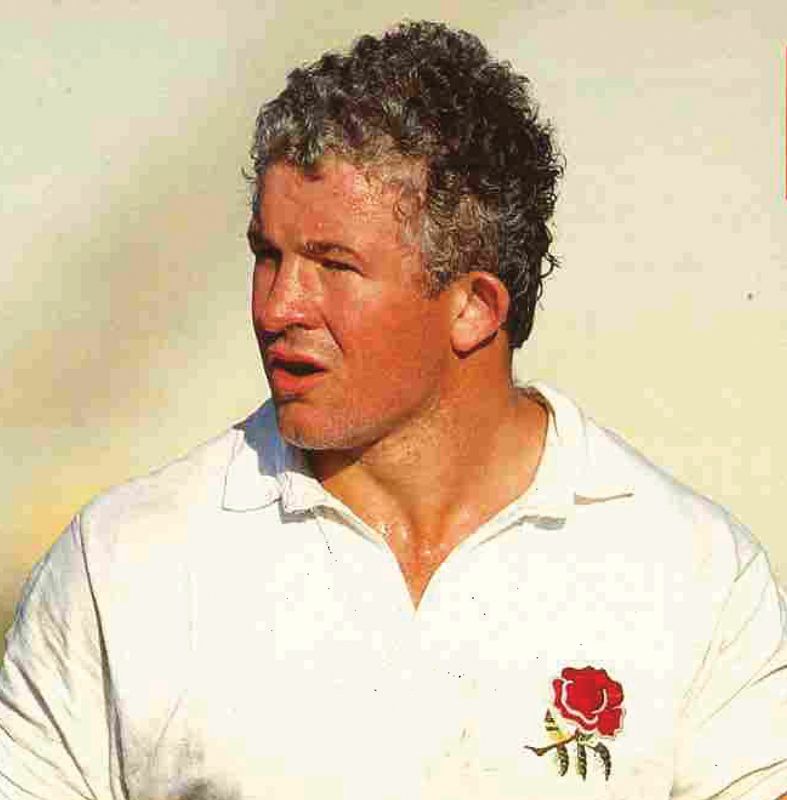- Home
- News, Articles & Reviews
- All Sport
- Cricket
- Cycling
- Football
- Golf
- Horse Racing
- Rugby Union
- Angling
- Archery
- Athletics
- Basketball
- Bowls
- Boxing
- Croquet
- Dance
- Darts
- Diving
- Duathlon
- Equestrian
- General
- Gymnastics
- Hockey
- Martial Arts
- Modern Pentathlon
- Motorsport
- Mountain Biking
- Netball
- Padel
- Parasport
- Polo
- Powerboating
- Powerlifting
- Rowing
- Rugby League
- Running
- Scuba Diving
- Shooting
- Skiing
- Skittles
- Snooker
- Squash
- Swimming
- Table Tennis
- Tennis
- Triathlon
- Tug of War
- Walking
- Walking Football
- Water Polo
- Weightlifting
- Wheelchair Tennis
-
Sport
- All Sport
- Cricket
- Cycling
- Football
- Golf
- Horse Racing
- Rugby Union
- Angling
- Archery
- Athletics
- Basketball
- Bowls
- Boxing
- Croquet
- Dance
- Darts
- Diving
- Duathlon
- Equestrian
- General
- Gymnastics
- Hockey
- Martial Arts
- Modern Pentathlon
- Motorsport
- Mountain Biking
- Netball
- Padel
- Parasport
- Polo
- Powerboating
- Powerlifting
- Rowing
- Rugby League
- Running
- Scuba Diving
- Shooting
- Skiing
- Skittles
- Snooker
- Squash
- Swimming
- Table Tennis
- Tennis
- Triathlon
- Tug of War
- Walking
- Walking Football
- Water Polo
- Weightlifting
- Wheelchair Tennis
We are hiring! Please click here to join our growing magazine delivery team in Gloucestershire!
Areas
Sport
Archive

Back in the day: Phil Blakeway, Gloucester, England, British Lions
All Areas > Sport > Rugby Union
Author: Roger Jackson, Posted: Thursday, 24th January 2019, 09:00
Mention the name Phil Blakeway around these parts and it’s likely to be followed by four words, ‘Gloucester, England, British Lion’.
And yet, if he had chosen another sporting path, it may have been another four words – equally impressive – that followed the mentioning of his name.
You see, Phil Blakeway, as well as being a Gloucester rugby legend and cornerstone of England’s 1980 Grand Slam-winning pack, was also a modern pentathlete back in the day.
And a good one he was too, good enough to be the reserve for Great Britain’s world junior championship team in London in 1968.
And come to think of it, ‘Phil Blakeway, Great Britain modern pentathlon’ does have quite a nice ring to it!
”I used to play rugby and do modern pentathlon,” said Blakeway, “but eventually Robbie Phelps, the four-time Olympian, said I had to choose between the two sports.
“I chose rugby because it was easier!”
Many injuries later – including a broken neck – in a rugby career spanning more than two decades, it could be argued that the teenaged Blakeway didn’t go for the easier option although it’s debateable whether he’d have enjoyed the level of success in modern pentathlon that he had in rugby.
“I was good at the shooting, fencing and riding,” he said, “but running and swimming weren’t my forte.”
He may be being a bit harsh on himself there as far as his running is concerned because although he was an out and out prop for the whole of his career and good enough to play 19 times for England – he was mainly a tighthead but could also play on the loose – he was also quick enough to play on the wing for Gloucester in the Middlesex Sevens on occasion.
Born in Cheltenham, Blakeway was educated at Sherborne School, a small private school, but it was at Cheltenham RFC that he learned his rugby.
He was part of the junior set-up before graduating to the Colts, the team that launched a good number of players onto top careers in the game.
“John Fidler, Nigel Jackson and Chris Mourton were all just before me,” said Blakeway, who has fond memories of that period in his life.
“Norman Rees did so much for us,” he said. “He was a Welsh school master at All Saints School and he used to run two Colts teams.
“He was incredible, I remember he always had a fag in his mouth!”
Blakeway, who was 68 on New Year’s Eve and lives in Sevenhampton, is very easy to talk to and is happy to tell stories from yesteryear in an era when players were fearsome rivals on the field and drinking pals in the clubhouse almost as soon as the final whistle had blown.
They were certainly unwritten rules that Blakeway was more than happy to abide by and he was certainly starting to make an impression as a rugby player in his late teens because he was captain of Gloucestershire Colts as well as Cheltenham Colts.
He also captained England Boys’ Clubs against their Welsh counterparts in Llanelli, a game England won 6-3, a result Blakeway needied no prompting to recall!
By the age of 19 Blakeway thought he’d try his luck at Gloucester. In those days wannabe players pretty much took themselves over to Kingsholm and it was a case of sink or swim.
Blakeway swam of course, despite what he said of his swimming prowess in his modern pentathlon days!
Not that he was an overnight success at Gloucester, it rarely worked like that in those days.
“I think I played 140 games for the United which was about the same number that I played for the first team,” Blakeway said.
The United teams were very strong in their own right – “I remember playing Coventry and their United side had seven internationals,” added Blakeway – but pulling on the cherry and white shirt for the first team was always the aim and Blakeway can still remember the first time he rubbed shoulders with the big boys in 1971.
“It was against Moseley at Kingsholm,” he said. “They were a first class side back then and had an international back line.
“We beat them but I remember thinking, ‘This is a tough old game, this is step up from what I’m used to’.”
Indeed it was but that’s hardly surprising when you consider some of the players he was lining up alongside in those early days – the likes of Mickey Booth, Alan Brinn and Mike Burton, Gloucester legends all of them.
And pretty much throughout his club career he didn’t have to look too far across the pitch to spot a Gloucester great, playing as he did alongside the likes of Mike Teague, John Gadd, Gordon Sargent, Robin Cowling, Mike Nicholls, John Orwin, Steve Boyle, Mike Longstaff and Richard Mogg to name just a few.
They were successful too and Blakeway played in the 1982 John Player Cup final side who shared the trophy with Moseley at Twickenham.
“It finished 12-12,” recalled Blakeway. “Paul Ford, who is the son of Peter Ford, kicked a penalty to take the game into extra time.”
By that time of course Blakeway was already an established international, which is a remarkable story in itself because he’d overcome serious injury to get himself back onto a rugby field.
And as injuries go they don’t come much more serious for a prop – even a very, very good one – than a broken neck.
It was in 1977 and Blakeway said: “I broke it on the Wednesday, played on the Saturday and found out on the Sunday!”
Typically, Blakeway said that as broken necks go, his wasn’t a bad one, but it was bad enough for him to stop playing for a couple of years.
So what got him back playing?
“I was at Kingsholm watching Gloucester play Pontypool,” said Blakeway. “Pontypool had that famous Welsh front row of Graham Price, Bobby Windsor and Charlie Faulkner and they were giving Gloucester a right shellacking.”
That wasn’t easy for someone like Blakeway to take of course, and a few choice works from Terry Hopson – a top fly-half for Gloucester who was watching the game a row behind Blakeway – served only to agitate Blakeway a little more.
So what did he do?
“I went and saw the vet,” he laughed. “He looked at my neck and said there was no bone displacement, there was no paralysis. He said I might break my neck again but not in the same place!”
So he started playing again and incredibly after two second-teams and two first-team games he was invited to an England trial.
And that obviously went very well because on Saturday 19th January 1980 he was lining up for his England debut against Ireland at Twickenham in the Five Nations Championship, a campaign that would go down as one of the greatest in English rugby history.
“It was unbelievable, talk about being in the right place at the right time,” said Blakeway. “The North had beaten the All Blacks in November and there were a lot of very experienced players in the England side.
“Fran Cotton was a 74 and 77 Lion, Peter Wheeler had gone on the 77 tour, Roger Uttley and Tony Neary both toured with the Lions in 74 and 77.
“Then there was John Scott who’d won 40-odd caps for England, plus Bill Beaumont and the great Maurice Colclough who is sadly no longer with us.
“It was easy to fit into that organisation. The team knew what they were doing, I just jogged behind them.”
What made the Grand Slam achievement all the more impressive, quite apart from the fact that England’s previous Grand Slam was as long ago as 1957, was that England were by no means among the favourites going into the tournament.
The Welsh were very strong around this time; the French were, well, the French, and Ireland were considered the favourites by many to win the tournament.
But England supporters’ hopes rose considerably when the Irish were dispatched 24-9 and they were at close to fever pitch after Beaumont’s boys had gone to Paris and won 17-13.
England hadn’t won there for 16 years and Blakeway went through the pain barrier, literally, to help make it happen.
“I broke my ribs right at the end,” he said. “I was on the floor and I got kicked. I couldn’t talk because I was winded. I was given some smelling salts which blew my ears – they were big enough! – off and the physio said, ‘Walk with me to the next scrum’.”
Fortunately England won the scrum and scrum-half Steve Smith kicked the ball into touch to win the game.
But if that was tough, things were about to get a whole lot tougher.
Next up were the unbeaten Welsh at Twickenham in a match that will always be remembered for Paul Ringer being sent off for a late tackle on England fly-half John Horton in an explosive match that took rugby – certainly northern hemisphere rugby – to new extremes.
“It wasn’t an edifying game,” admitted Blakeway. “War broke out before the first ball had landed.”
And although Blakeway is fiercely proud of England’s achievements that season, he admits that Ringer was unlucky to be sent off.
“The referee had called the captains Bill Beaumont and Jeff Squire to once side,” said Blakeway, “and Bill came back and said that the next player who does anything would be sent off.
“Paul Ringer’s tackle was late and high but it wasn’t that bad, it was unfortunate he got sent off.”
England, with Blakeway’s dad John watching on, prevailed, just, a late Dusty Hare penalty earning them a 9-8 win against opponents who had scored the only tries of the game.
“My dad was talking to a Welsh fan after the game who’d left just before the end and he thought they’d won,” added Blakeway with a chuckle.
Three down and one to go – Scotland at Murrayfield was the final leg. Scotland had had a typically up and down campaign – one win and two defeats – but the last thing their fans wanted was to see England clinch the Grand Slam on their soil.
And England certainly knew the magnitude of the game as well.
“The whole attitude of the squad changed,” said Blakeway, “everyone was a lot more tetchy.”
And it wasn’t only the players.
“I got a white envelope shoved under my door on the night before the game,” continued Blakeway. “It was from the RFU and they told me that they didn’t want a repeat of the behaviour in the game against Wales.”
Fortunately, that didn’t happen as a hat-trick of tries by John Carleton inspired England to a 30-18 win.
Blakeway, however, was in the wars again.
“I got clattered in the ribs again,” he said. “It was near the end and Fran Cotton said, ‘You can’t leave the field now’.
“I said, ‘I can’t run’, to which he said, ‘Well, you haven’t run for the last 70 minutes!’”
Blakeway did stay on the field of course and was able to lap up the cheers of the England supporters at the final whistle.
That was a special moment as it was when the players returned to the changing room.
“Bill slammed the door shut and then shook everyone by the hand,” recalled Blakeway.
“We’d won the Grand Slam for the first time in 23 years – we’d laid our Grand Slam ghost. There were a number of ex-England captains in the side – Uttley, Neary, Cotton – they’d all been through the revolving door.
“I was lucky to be around at the right time to play with all these quality players.”
And pretty much all of those players were selected for the British Lions tour to South Africa that summer – including Blakeway, who is cap number 559 – under Beaumont’s captaincy.
“The Lions was pretty special,” said Blakeway. “For us, it was our Olympic Games, there was no World Cup.
“It was the best 30 players from the British Isles and Ireland.
“Every training session was like an international, no-one wanted to be in the Wednesday team.”
Blakeway’s tour was shortlived however. His ribs were still giving him trouble – they were broken – and although he managed to play against East London his tour was over after that.
His wife Roz had just given birth to their second child, James, who was just six weeks old and he was happy to return home.
“There wasn’t a lot I could do,” he said. “Broken ribs in the front row wasn’t the best place to be.”
Blakeway continued to play international rugby for another five years – his final game for England was against Ireland at Lansdowne Road in 1985 when he played loosehead – but it would be 1991 before England won their next Grand Slam.
“Roger Uttley and Tony Neary retired straight away,” said Blakeway, “and Fran Cotton had problems with his legs.”
Beaumont was also forced to retire early and Blakeway added: “I remember going to Paris and I was the last man standing from the Grand Slam pack. I thought, ‘This is going to be a very difficult afternoon’.”
Blakeway stopped playing for Gloucester at pretty much the same time that he stopped playing for England although he did come out of retirement for half a season.
“I was training with Mike Teague,” he said. “It was while he was playing at Moseley and they said, ‘Why don’t you come up and play?’”
He played up until Christmas before hurting his neck.
“I went and saw the consultant and he asked me, ‘Why are you playing?” explained Blakeway.
“I said, ‘Because it’s fun’, to which he replied, ‘I don’t need the fees and you don’t need an op’.
“So I stopped playing at 42.”
And that was pretty much the end of Blakeway’s involvement in rugby. He still watches it on TV – “We’ve got two tellies in our house so it works,” he laughed – and he likes to see Gloucester do well.
And he’s certainly not one of those former players who is envious of the opportunities available to the modern-day stars.
“You can only play in your time,” he said, “you can only play what’s in front of you.
“It’s all so different now – the training, the dieticians, the physios, the facilities, the video analysis. Nobody did weight training in my day, now it’s compulsory.”
And it’s very different on the field as well.
“There were no TMO’s or citing officers,” said Blakeway. “The referee could never see what was happening on the other side of the scrum, you could do what you liked!
“When I played you’d get to Christmas and you’d be ploughing through the mud. Matches would get called off because the pitches were waterlogged or because of the frost. That doesn’t happen now.”
The make-up of the top teams was very different as well.
“We were all local players when I played,” continued Blakeway, “Now it’s a league of nations – clubs have had to go that way to survive.
“But I loved it when I played.”Other Images
Copyright © 2024 The Local Answer Limited.
Unauthorized use and/or duplication of this material without express and written permission from this site's author and/or owner is strictly prohibited. Excerpts and links may be used, provided that full and clear credit is given to The Local Answer Limited and thelocalanswer.co.uk with appropriate and specific direction to the original content.More articles you may be interested in...


© 2024 The Local Answer Limited - Registered in England and Wales - Company No. 06929408
Unit H, Churchill Industrial Estate, Churchill Road, Leckhampton, Cheltenham, GL53 7EG - VAT Registration No. 975613000You are leaving the TLA website...
You are now leaving the TLA website and are going to a website that is not operated by us. The Local Answer are not responsible for the content or availability of linked sites, and cannot accept liability if the linked site has been compromised and contains unsuitable images or other content. If you wish to proceed, please click the "Continue" button below:




